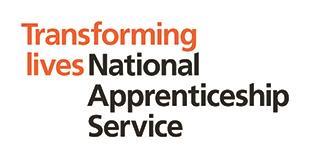

Apprenticeships are becoming an increasingly popular option for businesses, and it is easy to see why. They enable organisations to grow their workforce, providing highly qualified and motivated employees.
A primary reason for employers employing an apprentice is a need to improve their skills base and boost their long-term business development potential.
Apprenticeships deliver real returns for businesses and the economy by boosting employee engagement and, consequently, productivity and competitiveness.
The majority (96%) of employers that take on an apprentice report benefits to their business, according to the Department for Business, Innovation and Skills’ report, Evaluation of apprenticeships for employers research, published in 2012.
The research found that almost three-quarters (72%) of employers experienced improved productivity as a result of employing an apprentice, with the average apprentice increasing business productivity by £214 per week, resulting in increased profits, lower prices and better products for their organisation.
Apprenticeship levels
There are three levels of apprenticeships: intermediate, which is equivalent to five A*–C GCSEs; advanced, which is equivalent to two A-Levels; and higher, which is equivalent to a foundation degree or a bachelor’s degree, and a master’s degree level in some sectors.
Higher apprenticeships enable apprentices to develop the knowledge and competence required to perform effectively in a specific management or professional role.
Employers could also consider offering traineeships, which give young people aged 16 to 24 the essential work preparation training, maths and English skills and work experience needed to get an apprenticeship or other job. Developed in response to business needs, traineeships give employers an opportunity to help build a pool of high-quality, engaged recruits for their sector for the future.
Funding support is available
Some employers may be eligible for a £1,500 apprenticeship grant to help smaller businesses recruit a new apprentice aged 16 to 24. Organisations working with an approved government-funded training organisation can receive up to five grants in total for apprenticeship starts (up to December 2015). The grants do not have to be repaid.
More than 100,000 employers in England currently offer apprenticeships in 200,000 locations, covering more than 170 industries and 1,500 different job roles, but many employers have yet to take advantage of what is essentially a highly cost-effective tool with which to attract, retain and engage employees.
Where to start
Any employer thinking of taking on an apprentice or expanding its current programme can be assured that help is at hand during the process of employing an apprentice. We offer all employers dedicated support and funding and co-ordinate the delivery of apprenticeships throughout England.
We offer free, impartial advice and support to employers looking to recruit an apprentice for the first time, as well as to organisations that wish to expand their current apprenticeship programme.
And Find an Apprenticeship, the apprenticeship vacancies job site, enables employers to advertise their apprenticeships free to a large number of potential candidates. This not only saves money, but is also a convenient way to manage the recruitment process in one place.
Training organisations work with employers to place vacancies, manage the process and help select candidates. The site, which has more than 500,000 users, enables employers to find the perfect match for their vacancies. At any one time, there are up to 25,000 apprenticeships available on the site.
Apprentice employers report real business benefits, which is why employers should consider how employing an apprentice can help them grow.
Sue Husband is director of the National Apprenticeship Service











